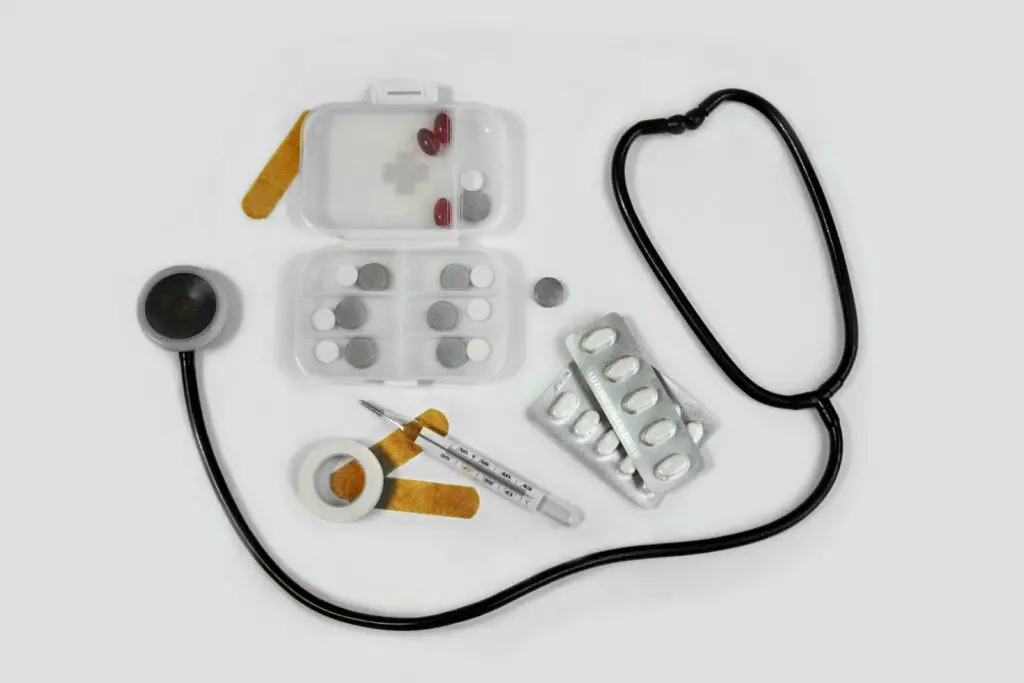The proper disposal of hearing aid batteries is essential for environmental and economic reasons. Improperly disposed-of batteries can end up in landfills, leading to adverse ecological effects.
Additionally, the mining and production of new replacements require substantial resources that may also negatively impact the environment.
Recycling these batteries conserves such resources while reducing their associated environmental consequences (NREL, 2018).
Furthermore, recycling hearing aid batteries yield significant financial benefits too; a study by the National Renewable Energy Laboratory revealed cost savings of up to $15 per pound recycled (NREL 2018).
An estimated 180 million used Hearing Aid Batteries are created annually in the United States (Call2Recycle 2020). We can achieve financial savings and natural resource conservation by recycling these batteries.
Hearing Aid Battery Recycling Steps
For those desiring to recycle their hearing aid batteries, we can follow several straightforward processes:
1. Collect Used Batteries
Gather used hearing aid batteries and store them in a designated container or bag for easy transport to a recycling center; this is the first step in the recycling process.
2. Determine the Type of Battery
Before recycling hearing aid batteries, it is essential to determine the battery type. This can be found by referring to the printed information on the battery or consulting your hearing aid documentation.
Note that different sizes and chemistries of batteries exist for hearing aids.
3. Find a Recycling Center that Accepts Hearing Aid Batteries
Various local pharmacies and hearing aid centers accept used batteries for recycling. Furthermore, you can enquire at the nearest recycling center to determine if they are also open to such donations.
Moreover, several nationwide programs like Call2Recycle and Battery Solutions also provide opportunities for recycling hearing aid batteries.
4. Properly Package and Label the Batteries for Recycling
It is imperative to correctly package and label hearing aid batteries to ensure safe transportation and proper processing at the recycling center.
An appropriate bag or container should be used for this purpose, with a clear indication of the type of battery and the word ‘recycle’ labeled on it.
Where to Recycle Hearing Aid Batteries
Options for recycling hearing aid batteries exist both locally and nationally. Programs are available to facilitate the proper disposal of these items :
1. Local Options
Local pharmacies and hearing aid centers may accept used hearing aid batteries for recycling.
It is suggested to contact the local recycling center beforehand to confirm their acceptance of these types of batteries before dropping them off.
2. National Recycling Programs
Call2Recycle and Battery Solutions are two of the nation’s leading recycling programs that accept hearing aid batteries.
Call2Recycle is a non-profit organization partnered with retailers and manufacturers to provide convenient battery collection options for consumers, featuring over 34,000 drop-off sites across America.
This program accepts various types of batteries, including those used in hearing aids.
On the other hand, Battery Solutions is a commercial recycling company offering services both businesses and individuals can take advantage of when recycling their hearing aid batteries and the wide other varieties they may have on hand.
Alternative to Hearing Aid Battery Recycling
Recycling used hearing aid batteries is an important option for proper disposal; however, there are also several other alternatives to consider:
1. Rechargeable Hearing Aid Batteries
Rechargeable hearing aid batteries offer an advantageous alternative to traditional disposable ones, as they can be charged via a dedicated charger and reused multiple times before requiring replacement.
This helps to minimize waste production and is cost-effective in the long term.
Before switching to rechargeable batteries, we must verify compatibility with your specific device by consulting your manufacturer or provider.
2. Reconditioning Used Batteries
Companies offering reconditioning services for used hearing aid batteries can clean and recharge them, potentially extending the battery’s lifespan.
While this does not offer as much environmental benefit as recycling, it could still help reduce waste and save money.
It is important to remember that only certain used batteries are eligible for reconditioning, with availability varying by location.
In conclusion, it is essential to dispose of hearing aid batteries appropriately for the environment and economy.
Recycling proves beneficial when disposing of used batteries, with various local and national programs offering convenience.
Moreover, rechargeable variants or reconditioning services can be considered alternatives that reduce waste while saving money.
By selecting a suitable disposal option, individuals and organizations can promote the conservation of resources and protect our planet’s natural habitat from harm.
References:
- (2020). Battery Recycling Statistics. – https://www.call2recycle.org/about/battery-recycling-statistics/







